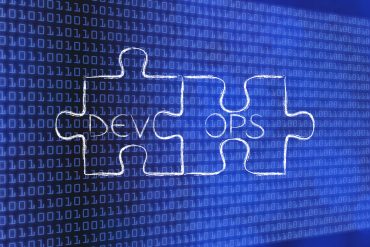
In this week’s real-time analytics news: AWS announced support for a second database engine to run near real-time time-series apps.
Keeping pace with news and developments in the real-time analytics and AI market can be a daunting task. Fortunately, we have you covered with a summary of the items our staff comes across each week. And if you prefer it in your inbox, sign up here!
Amazon Web Services (AWS) announced support for a second database engine in Timestream—Timestream for InfluxDB— to make it easy for customers to run near real-time time-series applications using InfluxDB and open-source APIs, including open-source Telegraf agents that collect time-series observations. Amazon Timestream, a serverless time series database service, enables customers to ingest tens of gigabytes of time series data per minute and run SQL queries on terabytes of time series data in seconds using Timestream for LiveAnalytics. With Timestream for InfluxDB, customers can build and run time-series applications and dashboards with millisecond response times and benefit from the security, reliability, and scalability of a fully managed AWS service.
Real-time analytics news in brief
DataStax announced multi-region vector data support in DataStax Astra DB. With the launch of multi-region support, users can put their relevant data in the right location to maximize responsiveness while delivering high availability for their GenAI application. Multi-region vector availability brings vector data closer to end-users, reducing latency and delivering real-time responses. Customers also benefit from streamlining GenAI application testing and validation processes with the ability to efficiently replicate staging environments to different regions, allowing for thorough testing in geographically diverse settings.
Alkira and RestorePoint.AI announced a strategic partnership to deliver a cloud-based data management service running on a private, secure network aimed at mid-market enterprises. The joint offering improves time to value and total cost of ownership for companies that lack the resources to build their own analytics and Generative AI (GenAI) integrations, so they can better compete in today’s data-driven economy.
Apolo announced the launch of GPU Hub with tools for efficient AI development. The solution helps enterprises use AI-ready physical infrastructure efficiently. To that end, Apolo provides access to readily available dedicated machines with pre-configured professional AI development tools from dependable data centers. With that capability, Apolo offers enterprises of all sizes a holistic and open solution for their AI development needs, ranging from server provisioning, LLM creation, and GenAI training to development environment software.
Apromore announced new and enhanced platform features that help business users visualize and refine highly complex processes. Apromore version 9.5 extends the platform’s AI-enabled process optimization engine to empower business users to gain insights and drive continuous improvement decisions on processes with thousands of activities and connections. New intuitive no-code features streamline process design and testing, and advanced KPI- and root-cause analysis transforms raw data into actionable insights.
Amazon Web Services (AWS) announced Anthropic’s Claude 3 family of models will be available on Amazon Bedrock—enhancing the ability of customers of all sizes to rapidly test, build, and deploy generative artificial intelligence (AI) applications across their organizations. Customers will be able to access the Claude 3 family of vision-enabled models—Claude 3 Opus, Claude 3 Sonnet, and Claude 3 Haiku—on Amazon Bedrock, with Sonnet and Haiku. Amazon Bedrock is the only managed service that currently offers Claude 3 models—Sonnet and Haiku—as generally available.
Dataiku announced the launch of its dedicated cost monitoring solution, LLM Cost Guard, a new component of the Dataiku LLM Mesh. LLM Cost Guard enables effective tracing and monitoring of enterprise LLM usage to better anticipate and control Generative AI costs. It provides visibility into costs attributed to specific applications, providers, and users for a fine-grained understanding of which LLM use cases are driving what costs. LLM Cost Guard is a feature within the Dataiku LLM Mesh, which provides a secure LLM gateway and allows customers to be agnostic when it comes to LLM providers, including integration of LLMs provided by OpenAI, Microsoft Azure, Amazon Web Services, Google Cloud Platform, Databricks, Anthropic, AI21 Labs, and Cohere.
Deci announced the launch of its Generative AI Platform, a comprehensive solution designed to meet the efficiency and privacy needs of enterprises. Deci’s Gen AI platform features a new series of proprietary, fine-tunable large language models (LLMs), an inference engine, and an AI inference cluster management solution. The first model being released in the series, Deci-Nano, has advanced language and reasoning capabilities that make it ideal for a broad spectrum of applications.
Edgeless Systems announced the launch of Continuum, a security solution that enables cloud-based “Confidential AI” services. At its core, Continuum ensures that user requests (or “prompts”) and the corresponding replies remain encrypted throughout and within an AI service, making plaintext data inaccessible to both the AI service provider and the underlying cloud infrastructure. Furthermore, it protects the often highly valuable weights of AI models in the same manner.
InfluxData announced a collaboration with Amazon Web Services (AWS) to deliver Amazon Timestream for InfluxDB, a new managed offering for AWS customers to run InfluxDB open source natively within the AWS Management Console. Now generally available, Amazon Timestream for InfluxDB allows users to quickly build and run time series applications on managed infrastructure with AWS’s scalability, reliability, and security without the overhead of self-management.
Microsoft and Oracle are expanding our collaboration to meet growing customer demand for Oracle Database@Azure around the world. Oracle Database@Azure will expand to five more regions, which brings the total planned multi-cloud availability footprint to 15 regions globally. Bringing Oracle Database@Azure to Europe will enable customers in the region to locally employ Oracle database services running on OCI hardware deployed in Azure data centers for the first time.
Nasuni announced the general availability of Nasuni Edge for Amazon Simple Storage Service (S3), a cloud-native, distributed solution that allows enterprises to accelerate data access and delivery times while ensuring low-latency access that is crucial for edge workloads, including cloud-based artificial intelligence and machine learning (AI/ML) applications, all through a single, unified platform. Nasuni Edge for Amazon S3 supports petabyte-sized workloads and allows customers to run S3-compatible storage that supports select S3 APIs on AWS Outposts, AWS Local Zones, and customers’ on-premises environments.
Nightfall AI unveiled new capabilities to enhance data security for the modern enterprise. The company’s generative AI (GenAI) DLP platform now offers coverage for SaaS Security Posture Management (SSPM), data encryption, data exfiltration prevention, and sensitive data protection. These products expand the company’s existing suite of data leak prevention (DLP) solutions for protecting data at rest and in use across SaaS applications, GenAI tools, email, and endpoints.
Opaque Systems announced their Opaque Gateway early access. Opaque Gateway is a flexible software solution that verifiably addresses data privacy, security, and sovereignty concerns, increases the flexibility of enterprise Generative AI deployments, and provides a valuable tool for managing and decreasing the total cost of operating GenAI implementations.
Oracle announced new generative AI capabilities within the Oracle Fusion Cloud Applications Suite that will help customers improve decision making and enhance the employee and customer experience. The latest AI additions include new generative AI capabilities embedded in existing business workflows across finance, supply chain, HR, sales, marketing, and service, as well as an expansion of the Oracle Guided Journeys’ extensibility framework to enable customers and partners to incorporate more generative AI capabilities to support their unique industry and competitive needs.
OutSystems announced AI Agent Builder, a new solution in the OutSystems Developer Cloud platform that makes it easy for businesses to incorporate generative AI (GenAI) powered applications into their digital transformation strategy, as well as govern the use of AI to ensure standardization and security. AI Agent Builder gives teams everything they need to build generative AI agents and embeds them within new or existing applications without any prior coding or AI expertise — addressing a critical shortage of AI talent while saving weeks in the development effort.
RapidCanvas emerged from stealth to launch its AutoAI platform. RapidCanvas features an AI-powered interface that guides users through the automated generation of AI models. Users can interact with the platform to generate and iterate on AI solutions tailored to their specific business needs and challenges. An enterprise-grade platform, RapidCanvas is SOC2 compliant, built on a scalable, secure cloud infrastructure and seamlessly integrates with more than 300 databases, applications, and libraries.
Semarchy announced the launch of its Data Intelligence solution, designed to collaboratively govern and improve data from assets to initiatives with activated metadata. A natural extension of MDM, Data Intelligence helps organizations understand the entire lineage of their data — where it is coming from and who has access to it. The company also unveiled its GenAI Enrichers plugins, which offer simple, native integration in xDM for hosted LLM models. With simple API key activation, customers gain immediate access to GenAI capabilities to enrich master data, with support for customized data-driven prompts and structured output. Targeted services include OpenAI, Azure OpenAI, Google AI, Amazon Bedrock and Mistral.
Sisense announced the general availability of Compose SDK for Fusion. This software developer toolkit enables the delivery of customized data experiences using a code-first, scalable, and modular approach to accelerate go-to-market and optimize cost savings. The company also announced its Fusion Winter 2024 release to enhance Sisense’s analytics suite—composed of Fusion Embed, Sisense Cloud, and Compose SDK —with powerful new features for collaboration and customization.
StreamNative has announced the generally available version of Kafka on StreamNative, which is available on ONE StreamNative Platform. ONE StreamNative Platform is an agnostic data streaming platform compatible with multiple streaming and messaging protocols from a single platform. This simplifies complex data streaming by allowing users to seamlessly choose the data streaming technology that best fits their needs. By adding Kafka protocol, the platform allows users to run Kafka workloads on a robust and scalable platform while lowering costs without rewriting applications.
If your company has real-time analytics news, send your announcements to ssalamone@rtinsights.com.
In case you missed it, here are our most recent previous weekly real-time analytics news roundups:
- Real-time Analytics News for the Week Ending March 9
- Real-time Analytics News for the Week Ending March 2
- Real-time Analytics News for the Week Ending February 24
- Real-time Analytics News for the Week Ending February 17
- Real-time Analytics News for the Week Ending February 10
- Real-time Analytics News for the Week Ending February 3






























